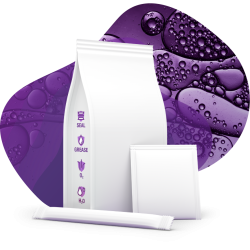
Eco-Effectiveness

Sappi's sustainability initiative is a clear commitment to even greater environmental awareness.
2015: A commitment that is good all round
At first glance, the term may seem enigmatic. However, eco-effectiveness is not a company secret but rather an issue that affects everyone. But what does it stand for: a campaign, an initiative, a concept? Chiefly, it is a sincere commitment. It says: "Yes, I'm in!" At Sappi, eco-effectiveness stands for the readiness to act in a sustainable manner and to raise other people's awareness of the issue.
The entire Sappi team is encouraged to think in economic and ecological terms in equal measure. By doing so, we work together to shape a hopeful, positive future – for our environment and our company all over the world. All Sappi employees around the world actively practice the principle of eco-effectiveness, which entails critically analyzing our behavior and encouraging customers, visitors, and other people to join in. For example, there are three simple questions that anyone can ask themselves every day:
- Am I being careful with water: do I turn off the faucet when I'm cleaning my teeth, for example?
- Do I switch off my computer, the TV, or the light when I leave home or work?
- Am I making short trips on foot or by bike instead of taking the car?
We don't expect people to answer yes to all three straight away. What's important is that we all start thinking about how waste of any kind can be minimized. Eco-effectiveness is not a fixed idea, but how we act every day, in the here and now. Our logistics team is leading by example. They asked themselves how to optimize paper transport from the perspective of sustainability. The result is surprising. On closer inspection, delivery runs and routes that have been established for years turned out to have plenty of room for improvement.
That's why our logistics experts ship goods to intermediate storage facilities on the way to the customer. From there, Sappi's special papers are transported by train or truck as need be. The bottom line means lower CO2 emissions and greater flexibility. This is just one of many examples within the framework of eco-effectiveness that we like to talk about and that make us proud.
2016: Clean: Our economical wastewater system
Eco-effectiveness: less power for the same output – an important contribution to Sappi's sustainability initiative.
Sappi's initiative for greater environmental awareness has a name: eco-effectiveness. Its aim is to encourage people across the whole company to think and act in a more sustainable way. Reducing the energy consumption of our wastewater facility in Alfeld is a good example of what can be achieved by critically analyzing absolutely everything, and then subsequently optimizing it. We have been able to reduce annual electricity consumption by 864,000 kWh at the aerobic biological stage of our in-house treatment plant. That's roughly the annual consumption of around 250 private households in Germany.
Water has a primary significance in the manufacture of special papers. At our plant, we need it in the wood pulp works, in the power plant, and in the paper works. Some of the fresh water, which we extract for instance from the local river Leine, is used to dissolve external pulps in order to be able to mix them with our own. What counts overall is that our water consumption is reduced by reusing it as frequently as possible. Our wastewater plant also ensures that only water that has been biologically cleaned is returned to the river.
We are always on the look-out for new optimization opportunities to achieve the greatest possible energy efficiency. In our in-house treatment plant, energy is required for example to inject oxygen into the aeration tanks. Not only have we been able to improve this process through technical modifications, we have also been able to reduce our electricity consumption – something we are always looking to achieve in the context of eco-effectiveness.
2017: Clean solution for process water
Eco-effectiveness: Sappi optimizes its diffusion process in Alfeld, reducing the environmental burden.
With the "eco-effectiveness" sustainability initiative, Sappi is making a worldwide commitment. We are thinking in economic and ecological terms in equal measure. Each employee, whether in Alfeld or at other sites around the world, pledges to act in an environmentally friendly manner. Such an undertaking requires diligence, consistency, and innovative ideas. The best example of this is that we have been able to turn the two-stage diffusion process for wood pulp production in Alfeld into a one-stage process, reducing both the environmental burden and our costs.
It was important for us to be able to realize the optimizations in the diffusion process with irregular cleaning rinses. Sappi in Alfeld is constantly taking water from the river Leine and feeding it back into the river after it's been used for a range of processes. Unlike municipal wastewater, our process water only contains minimal traces of phosphorus and nitrogen. Making sure it stays that way is self-evident for us in the context of eco-effectiveness.
Precisely how was this change brought about? We now avoid cleaning agents that contain phosphorus which used to result in peak loads. During the diffusion process, our experts are now able to use just enough phosphorus and nitrogen as we need for our biological processes in pulp manufacture. For that reason, our values for the use of trace elements such as phosphorus and nitrogen are 20 percent below the permitted values. We make sure that no overdosing takes place and have further improved our stable working processes. Successes like these spur us on and make us proud.







